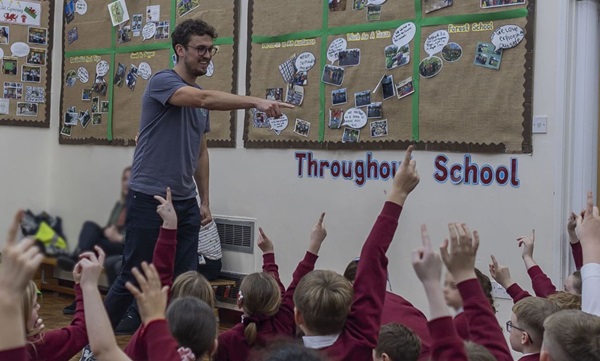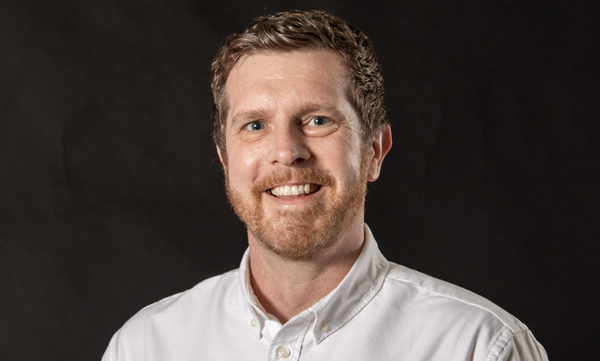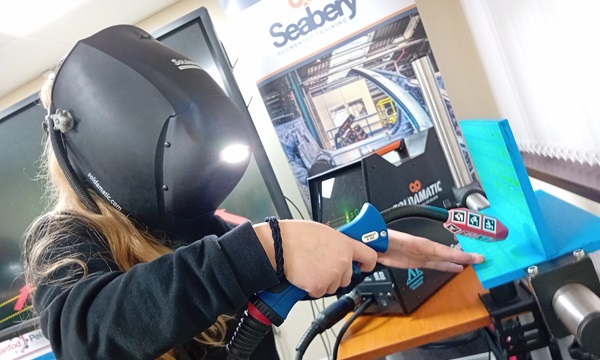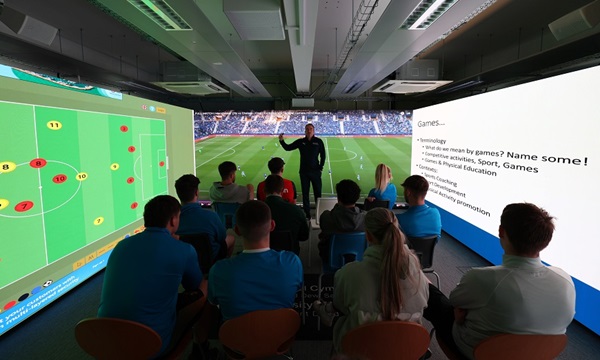A research team led by Bangor University has secured additional funding from the Welsh Government to further develop, expand, and evaluate the Research on the Instruction of Literacy with Language (RILL) intervention for children with reading difficulties. RILL is a highly effective programme which improves the literacy and language skills of primary-aged children and it currently exists in both Welsh and English. Designed for small groups of 7–9 year-olds, RILL is a 20-week intervention, targeting those who require additional literacy support.
Initially launched to address the educational challenges during the COVID-19 pandemic, RILL is now an in-class teaching method, supporting both English and Welsh language learners. Key aspects of RILL include its evidence-based approach, thoroughly tested for efficacy via randomised controlled trials (RCTs). It has already demonstrated significant success in enhancing reading abilities, with improvements seen in children from both Welsh- and non-Welsh-speaking homes.
Research demonstrated that children who underwent the RILL programme showed significant growth in literacy outcomes compared with children who were in a control group, receiving the programme at a later date. This demonstrates the programme’s effectiveness in rapidly advancing language and literacy development. Findings highlight RILL’s ability to provide crucial support to children with the greatest literacy challenges, enabling them to achieve meaningful progress in a relatively short time frame.
Manon Jones, Professor of Psychology, who leads the RILL programme, said, “We are greatly encouraged by the robust evidence that demonstrates RILL’s enduring impact on children’s literacy skills in both Welsh and English. The programme’s success in reaching children from diverse language backgrounds underscores its potential to address literacy disparities, ensuring every child has the opportunity to improve, regardless of their starting point”.
To date, the research team has conducted several RCTs on RILL, involving 183 schools across Wales, with nearly 700 children participating. Additionally, 366 educational practitioners have been trained in the science of reading and the effective use of the RILL programme. Trials were conducted both during the COVID pandemic (remote RILL) and post-pandemic, with the programme successfully trialled in both Welsh and English settings.
Two participating schools said:
Ysgol Rhosneigr, Anglesey: The RILL program has been a huge success in our school! Designed to make learning fun and interactive, we have seen an increase in our pupils’ language skills and a boost in their confidence. The daily structure of the programme, although consistent, includes a variety of games and entertaining activities that keep the children interested and motivated. Recommended for any educator who wants to develop oral and reading skills.
Ysgol Abererch, Gwynedd: The pupils looked forward to the RILL sessions every week and enjoyed working through the units. The format of the program was appealing, colourful and the consistent structure helped build their confidence. The RILL group has developed all their literacy skills – the impact of the program is noticeable in their writing, particularly the use of new vocabulary in class work. It is great to have a program like this available in Welsh.”
In this next phase, the RILL team will collaborate with OxEd & Assessment, a leading provider of education tools, to make the programme accessible on a national scale through a custom-built digital platform. This collaboration will allow the programme to reach more children across Wales, and additional evaluations will determine its broader application to support struggling readers in both Welsh and English.
Professor Charles Hulme, FBA, Emeritus Professor of Psychology and Education, University of Oxford, and Founder and CEO of OxEd and Assessment said
“I am delighted to be collaborating with Professor Manon Jones and her team at the University of Bangor to further evaluate the effectiveness of the RILL programme. This programme has potential to make a real difference to children’s reading and language skills in Wales, and other parts of the world.”
Cabinet Secretary for Education, Lynne Neagle said:
“I am delighted to see the significant boost to reading and literacy skills that this programme has had. Every learner deserves the best education possible, and I am pleased that with the additional Welsh Government funding this work will benefit more children and young people.”







